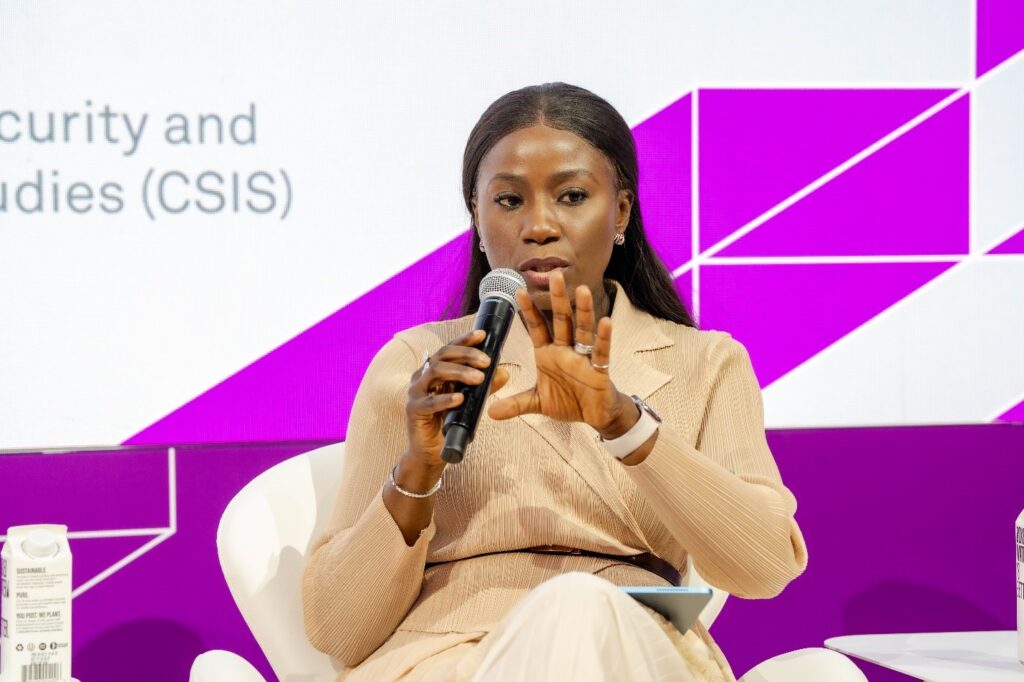The Federal Government has made a firm commitment to bridging the metering gaps and solving the financial liquidity challenges in Nigeria’s power sector.
This pledge came from Olu Verheijen, Special Adviser on Energy to President Bola Tinubu, during her participation at the 2024 edition of CERAWeek by S&P Global in Houston, United States.
The event, under the theme “Energizing Tomorrow: Charting a successful path for Africa’s energy transition,” saw Paul McConnell, Research and Analysis Executive Director at S&P Global, as the moderator.
The discussion panel featured prominent figures like Dr Amani Abou-Zeid, Commissioner for Infrastructure, Energy, and Digitisation at the African Union, and Gracelin Baskaran, Research Director and Senior Fellow at the Energy Security and Climate Change Program, Centre for Strategic and International Studies.
FG leveraging technology
Verheijen shed light on the government’s strategy for decentralizing transmission and leveraging different technologies to boost electricity supply, particularly for high-demand customers. She candidly addressed the government’s fiscal limitations, outlining several innovative measures to derisk the power sector and stimulate investment.
Highlighting the enormous investment requirements identified by the International Energy Agency, which pegs the gap at $190 billion annually, Verheijen revealed that the government focuses on surmounting these fiscal challenges through targeted, creative solutions.
A key initiative she disclosed involves a plan to significantly enhance transmission capacity without the complete $10 billion initially estimated as necessary.
By adopting digital technology and smart meters, the initiative aims to transform 6 million customers into paying clients, thereby increasing revenue, enhancing the financial health of public utilities, and attracting further investment.
Closing the metering gap
Given the restricted fiscal environment, Verheijen emphasized the thoughtful and strategic approach to these interventions.
She explained that closing the metering gap and resolving financial liquidity issues makes it possible to mitigate risks throughout the value chain, attract more capital to the grid, extend access, and foster greater electricity consumption, signifying a transformative phase for Nigeria’s power sector.
Specifically, she said:
- “So, if you look at this scale of investments that are required, you know, some entities like IEA have estimated about $190 billion a year, we don’t have the fiscal space for that.
- “So, what are we trying to do to make sure we are able to scale faster? We are making sure that we actually creatively target certain aspects that we think are catalytic to the rest of the entire value chain.
- “So, we launched a presidential initiative recently. What are we using that to do? We say we need about $10 billion to double our transmission capacity, we don’t have that, but maybe we have a fraction of that and we can actually then make sure we procure metres, convert all of the 6 million customers that we currently into paying customers with digital technology and smart metres and make sure we grow revenue that way.
- “If we grow that revenue, then we’re able to make sure that we improve the financial viability of this public utilities and attract capital.
- “So, that’s an example of how we’re being extremely strategic about the level of interventions that we have within our limited fiscal space.
- “Once that is done and we have closed the metering gap, you have to address the financial liquidity issues, that tends to be. When you’ve de-risked that entire value chain, we can then have more capital to that grid and then expand access and grow consumption.”
More Insights
- Nairametrics earlier reported that the 11 power distribution companies (DisCos) secured a total amount of N53.3 billion in credit facility from the Central Bank of Nigeria’s National Mass Metering Programme (NMMP).
- The NMMP was initiated in 2020 and aimed to address the metering shortfall in Nigeria and put an end to the imprecise estimated billing practices for energy users. It aimed at supplying 962, 832 electricity meters in the six geopolitical zones of the country.
- However, the report shows that 883,511 meters had been installed as of September 2023.
- According to data from CBN, the initiative drove Disco’s monthly revenue collection from N42 billion in 2020 to over N72 billion by the end of 2022.
